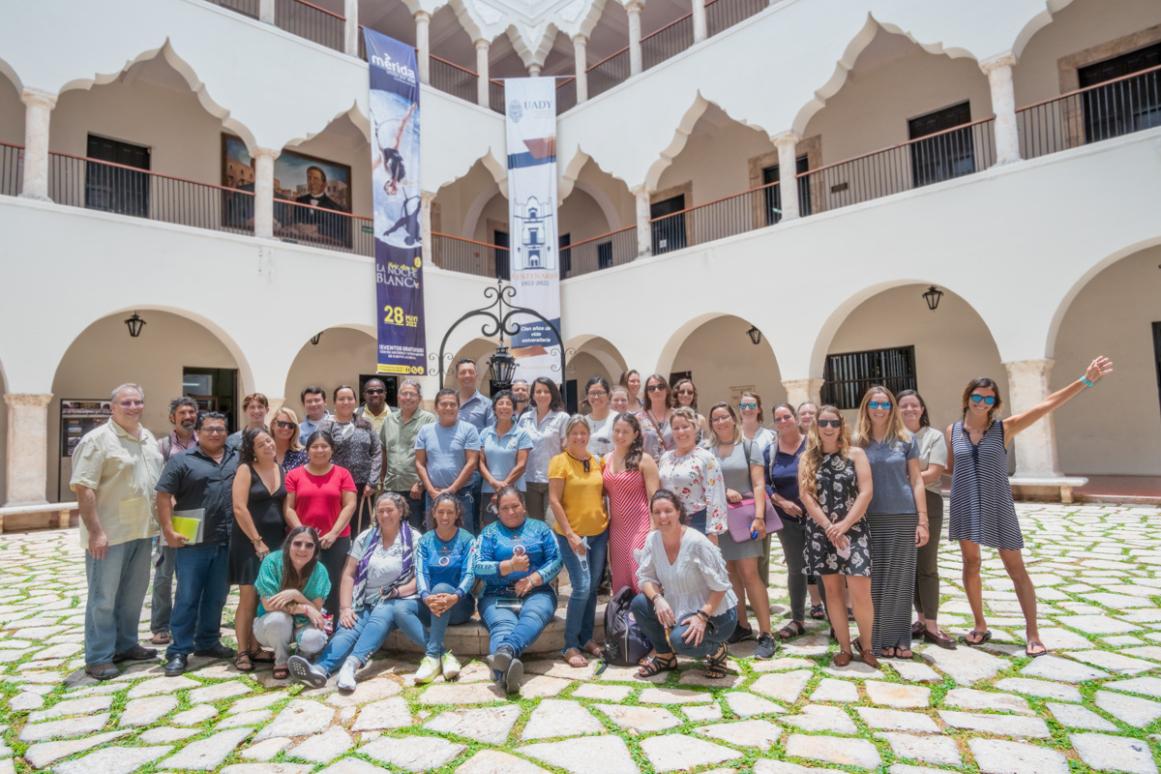Sixth SWIMM Workshop Brings Together Students, Ideas from Across the Gulf of Mexico
The idea behind the Student Workshop on International Coastal and Marine Management (SWIMM) program was simply to get scientists and graduate students in Mexico, Cuba, and the United States to start talking. While in years past, these groups have wanted to work together, it hasn’t always been that easy.
“It’s difficult in other countries for a number of reasons,” said Dr. Mark Besonen, the HRI Director of International Programs and an Associate Research Scientist at Harte Research Institute for Gulf of Mexico Studies (HRI) at Texas A&M University-Corpus Christi (TAMU-CC). “We have to contend with a language barrier, different social environments, and even infrastructure that can make communication as we know it difficult.”
The program officially started in 2010 when scientists from Cuba, Mexico, and the U.S. met at HRI to discuss some of the most common goals and challenges faced by countries in the Gulf. Eventually though, SWIMM morphed into the program it is today, bringing graduate students, and future Gulf leaders, together to develop innovative, integrative, and sustainable solutions to common environmental challenges.
“We wanted to cultivate lifelong friendships and work relationships among the next scientists and natural resource managers from each of the three countries,” Besonen said.
One of the first student workshops was focused on Cuba’s Caguanes National Park. Groups from the U.S., Mexico, and Cuba discussed the pros and cons to adding eco-tourism elements to the national park. While the discussion was productive and many were eager to get started, as soon as the group left Caguanes, Hurricane Irma destroyed a significant portion of the vegetation in the park. The devastation, however, gave way to an innovative idea for the next workshop: tracking the recovery of the landscape in the framework of a report card.
“The report card idea was nothing formal, but it allowed us to put together some benchmarks that we could monitor and track,” Besonen said. “The report cards are easy for anyone to understand and serve as text you can look back on and see how something has progressed over the years.”
Besonen says that to create the most thorough report card, everyone with a stake in a particular location has to be involved early on as there are many different valuables for different stakeholders.
“We have to get all the groups there and start talking about what are the threats, benefits, and work on a series of indicators for the health of an ecosystem and it’s socio-economic systems,” Besonen says. “The report cards are a snapshot of time.”
In early 2020, SWIMM visited Campeche, traveling throughout the Mexican state, interviewing several people along the way. Soon enough though, the COVID-19 pandemic put the brakes on workshop travel.
In 2021, with more to be done, the workshop went partially virtual but took the report card to the next step by focusing on the Alacranes Reef, the largest reef in Mexico, and the infrastructure that supports it. The initial plan was to discuss the first ideas for the report card remotely and then get together again later in the year.
Despite continued delays, the in-person workshop finally took place in May of 2022. The 2022 workshop was especially productive as it not only brought together the SWIMM group but also students through an international peer exchange funded by the National Fish and Wildlife Foundation. The group discussed problems associated with stony coral issue loss disease and how they could bring lessons learned from impacted areas in the Caribbean to the Gulf of Mexico.
Besonen says that there is an application process for students who want to get involved in SWIMM. The application information is distributed widely among three countries and consists of three short answer questions, as well as letters of recommendation. Students are not required to be bilingual to be a part of SWIMM. While speaking Spanish helps when working with students from Cuba and Mexico, having an open mind and being willing to try and communicate with those who don’t speak your language is more important.
“So many science conferences are in English,” Besonen said. “Being a part of something like this as someone who doesn’t speak Spanish helps students understand what it’s like for several foreign countries to come to various conferences.”
The next SWIMM workshop is slated to take place in January of 2023 and application information and videos from prior workshops can be found on the SWIMM website.
SWIMM is funded in part by the National Academies of Science Gulf Research Program and the Furgason International Fellowship.

